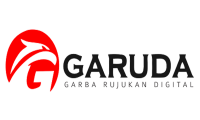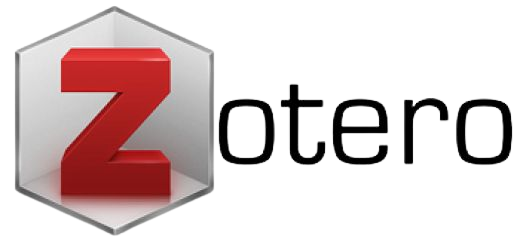Analisis Penerapan Remote Auditing Pasca Pandemi pada Kantor Akuntan Publik Regional (Studi Kasus KAP XYZ)
Rizqie Zakie Pahlevie(1*)
(1) Magister Akuntansi, Fakultas Ekonomika dan Bisnis, Universitas Gadjah Mada, Yogyakarta
(*) Corresponding Author
Abstract
Tujuan-
Tujuan penelitian ini adalah untuk mengeksplorasi penerapan remote auditing di Kantor Akuntan Publik (KAP) XYZ Jakarta Selatan setelah pandemi Covid-19, serta memahami manfaat dari penerapan remote auditing.
Metode Penelitian - Penelitian ini menggunakan metode kualitatif dengan pendekatan studi kasus, melibatkan enam informan yang terdiri dari partner, manajer audit, auditor senior, dan auditor junior. Data dikumpulkan melalui wawancara mendalam dan dianalisis menggunakan teknik analisis kualitatif.
Temuan – Temuan penelitian mengungkapkan bahwa KAP XYZ berhasil beradaptasi dengan kondisi pandemi melalui penerapan remote auditing, yang tetap diterapkan pasca pandemi karena efisiensi waktu dan biaya yang dirasakan. Meskipun terdapat tantangan seperti risiko kehilangan data dan perubahan prosedur audit, kemampuan auditor dalam menggunakan teknologi dan adaptabilitas mereka terbukti krusial dalam memastikan kelancaran proses audit.
Batasan/Implikasi – Implikasi dari penelitian ini menunjukkan pentingnya pelatihan auditor dalam teknologi digital untuk memaksimalkan manfaat remote auditing. Batasan penelitian ini terletak pada fokusnya pada satu KAP regional, sehingga generalisasi hasil mungkin terbatas.
Originalitas/Nilai – Penelitian ini memberikan kontribusi orisinal dengan mengkaji penerapan remote auditing di KAP kecil dan menengah, yang belum banyak dibahas dalam literatur.
Keywords
Full Text:
PDFReferences
Al Shbail, M. O., Jaradat, Z., Al-Hawamleh, A., Hamdan, A., & Musleh Alsartawi, A. M. (2024). Enhancing audit quality in non-Big
firms: the role of remote auditing and audit staff capabilities. Journal of Financial Reporting and Accounting.
Alam, D., & Suryanawa, I. K. (2017). Pengaruh Kompetensi, Indepedensi, Akuntabilitas, dan Due Profesional Care Pada Kualitas Audit. E-Jurnal Akuntansi Universitas Udayana 21(3):2282-2310.
https://ojs.unud.ac.id/index.php/akuntansi/article/view/35424
Albu, C. N., Albu, N., & Alexander, D. (2014). When global accounting standards meet the local context—Insights from an emerging economy. Critical perspectives on accounting, 25(6), 489- 510.
Alsabahi, M. A., Ku Bahador, K. M., & Saat, R. M. (2021). The influence of personal characteristics and workplace learning on information technology competency among external auditors: The role of organisational culture as a moderator. Cogent business & management, 8(1), 1899625.
Al-Ansi, A. A. (2022). Is the impact of audit effort on quality of auditors’ performance contingent on virtual audit proficiency? Cogent Business & Management, 9(1). https://doi.org/10.1080/23311975.2022.2144704.
Ariyanto, S., & Audit, R. (2022). Pengaruh Pelaksanaan Remote Audit terhadap Kinerja. Journal of Islamic Finance and Accounting Research 1(1), 20–29. https://journal.uir.ac.id/index.php/jafar/article/view/8827.
Awaliah, F., & Setiawan, D. S. (2023). Analisis Penerapan Pendekatan Audit Jarak Jauh Dampak dari Pandemi Covid-19 (Studi Kasus: Inspektorat Jenderal Kementerian Kesehatan RI). Owner: Riset Dan Jurnal Akuntansi 7, 742–752. https://owner.polgan.ac.id/index.php/owner/article/view/1311
.
Baatwah, S. R., Al-Ansi, A. A., Almoataz, E. S., & Salleh, Z. (2023). Self- efficacy, remote audit proficiency, effort, and performance in the COVID-19 crisis: an auditor’s perspective. Managerial Auditing Journal 38(6):832-862. https://www.emerald.com/insight/content/doi/10.1108/MAJ- 05-2022-3570/full/html
Barretto, C. R., Drumond, G. M., & Méxas, M. P. (2022). Remote audit in the times of COVID-19: a successful process safety initiative. Brazilian Journal of Operations & Production Management, 19(3).
Betti, N., & Sarens, G. (2021). Understanding the internal audit function in a digitalised business environment. Journal of Accounting & Organizational Change, 17(2), 197-216.
Bolden, R., Gosling, J., & Hawkins, B. (2023). Exploring leadership: Individual, organizational, and societal perspectives. Oxford University Press.
Boynton, J.C., & Johnson, R.N. (2014). Modern Auditing: Assurance Services and the Integrity of Financial Reporting. New Jersey: John Wiley & Sons.
Castka, P., & Searcy, C. (2023). Covid-19: A paradigm shift in the making. Business Horizons, 66(1), 5–11. https://www.sciencedirect.com/science/article/pii/S00076813 21002056.
Castka, P., Searcy, C., & Fischer, S. (2020). Technology-enhanced Auditing in Voluntary Sustainability Standards: The Impact of Covid-19. Sustainability 1–24.
https://www.mdpi.com/journal/sustainability/sections/manag ement_aspects_of_sustainability.
Chang, H., Guo, Y., & Mo, P.L.L. (2019). Market competition, audit fee stickiness, and audit quality: Evidence from China. Auditing, 38(2), 79–99. https://publications.aaahq.org/ajpt/article- abstract/38/2/79/6108/Market-Competition-Audit-Fee- Stickiness-and-Audit?redirectedFrom=fulltext.
Creswell, J.W. (2009). Research Design: Qualitative, Quantitative, and Mixed Methods Approaches. CA: Sage.
Dacin, M. T., Goodstein, J., & Scott, W. R. (2002). Institutional theory and institutional change: Introduction to the special research forum. Academy of Management Journal, 45(1), 45–57. https://doi.org/10.2307/3069284.
Danim, S. (2014). Menjadi Peneliti Kualitatif. Bandung: Pustaka Setia.
Daoud, L., Marei, A., Al-Jabaly, S., & Aldaas, A. (2021). Moderating the role of top management commitment in usage of computer- assisted auditing techniques. Accounting, 7(2), 457-468.
Dyball, M. C., & Seethamraju, R. (2021). The impact of client use of blockchain technology on audit risk and audit approach—An exploratory study. International Journal of Auditing, 25(2), 602-615
Efendi, A. (2020). Mekanisme Audit Kinerja Berbasis Teknologi Informatika Pada Masa Pandemi Covid-19 dan Pengaruhnya terhadap Proses Pendidikan dan Pelatihan Jabatan Fungsional Auditor (JFA) Aparat Pengawas Internal Pemerintah. Prosiding Seminar Nasional Pascasarjana Universitas Negeri Jakarta. https://journal.unj.ac.id/unj/index.php/semnas- ps/article/download/16852/9144.
Eulerich, M., Wagener, M., & Wood, D.A. (2021). Evidence on Internal Audit Effectiveness from Transitioning to Remote Audits Because of COVID-19. February. https://doi.org/10.2139/ssrn.3774050
Farcane, N., Bunget, O. C., Blidisel, R., Dumitrescu, A. C., Deliu, D., Bogdan, O., & Burca, V. (2023). Auditors’ perceptions on work adaptability in remote audit: a COVID-19 perspective. Economic Research-Ekonomska Istraživanja, 36(1), 422-459.
Febriani, W., & Martani, D. (2023). Evaluation of The Implementation of Remote Audit Method on Financial Audit During Pandemic Covid -19 (Case Study at The Supreme Audit Institution).
Contemporary Accounting Case Studies 2, (1):632-651. https://feb.ui.ac.id/uploads/2023/04/Widya-Febriani_cacs- 2.1.pdf.
Gokoglan, K., Cetın, S., & Bılen, A. (2022). Blockchain technology and its impact on audit activities. Journal of Economics Finance and Accounting, 9(2), 72-81.
Goodrick, E., & Salancik, G. R. (1996). Organizational Discretion in Responding to Practices : Institutional Hospitals and Cesarean Births. Administrative Science Quarterly, 41(1), 1–28.
Goodstein, J. D. (1994). Institutional Pressures and Strategic Responsiveness: Employer Involvement in Work-Family Issues. Academy of Management Journal 37(2), 350–382.
Graham, S. (2020). An attributional theory of motivation. Contemporary Educational Psychology, 61, 101861.
Greenwood, R., Hinings, C. R., & Whetten, D. (2014). Rethinking institutions and organizations. Journal of Management Studies, 51(7), 1206–1220.
https://doi.org/10.1111/joms.12070
Greenwood, R., Suddaby, R., & Hinings, C. R. (2002). Theorizing change: The role of professional associations in the transformation of institutionalized fields. Academy of Management Journal, 45(1), 58–80. https://doi.org/10.2307/3069285
Hattie, J., Hodis, F. A., & Kang, S. H. (2020). Theories of motivation: Integration and ways forward. Contemporary Educational Psychology, 61, 101865.
IAPI. (2018). Panduan Indikator Kualitas Audit pada Kantor Akuntan Publik. Keputusan Depan Pengurus IAPI No. 4 Tahun 2018. Institut Akuntan Publik Indonesia. https://iapi.or.id/panduan- indikator-kualitas-audit-pada-kap/
IAPI. (2020). Respons Auditor atas Pandemi Covid-19: Terhadap Laporan Keuangan, Prosedur Audit, dan Pertimbangan Praktis Penunjang Kualitas Audit. Institut Akuntan Publik Indonesia, 1–20. https://iapi.or.id/uploads/article/76.
Ismanidar, N., Maksum, A., Gultom, P., & Meutia, R. (2022). The effect of auditor competence and remote audit support on audit quality through digital-based governance with information technology as moderating variable in state financial audit. International Journal of Business and Technology Management, 4(2), 7-17.
Jarva, H., & Zeitler, T. (2021). Implications of the Covid-19 pandemic on internal auditing: a field study auditing. Journal of Applied Accounting Research.
https://www.emerald.com/insight/content/doi/10.1108/JAAR
-12-2021-0333/full/html.
Kementerian Keuangan. (2020). Pusat Pembinaan Profesi Keuangan (P2PK). Jakarta: Pelayanan Perizinan dan Pelaporan Profesi Keuangan. https://setjen.kemenkeu.go.id/in/page/Pusat- Pembinaan-Profesi-Keuangan
Koerniawati, D. (2021). The Remote and Agile Auditing: A Fraud Prevention Effort to Navigate The Audit Process In The Covid-19 Pandemic. Jurnal Riset Akuntansi dan Bisnis Airlangga 6(2), 1131–1149. https://media.neliti.com/media/publications/353226-the- remote-and-agile-auditing-a-fraud-pr-11781828.pdf.
Lois, P., Drogalas, G., Karagiorgos, A., & Tsikalakis, K. (2020). Internal audits in the digital era: opportunities risks and challenges. EuroMed Journal of Business, 15(2), 205-217.
Lugli, E., & Bertacchini, F. (2023). Audit quality and digitalization: some insights from theItalian context. Meditari Accountancy Research, 31(4), 841-860.
Lutfi, A., & Alqudah, H. (2023). The influence of technological factors on the computer-assisted audit tools and techniques usage during COVID-19. Sustainability, 15(9), 7704.
Malle, B. F. (2022). Attribution theories: How people make sense of behavior. Theories in Social Psychology, Second Edition, 93- 120.
Miles, M. B., & Huberman A. M. (2014). Qualitative Data Analysis.
Jakarta : UI Press.
Miles, M.B., Huberman, A.M., & Saldaña, J. (2014). Qualitative Data Analysis: A Methods Sourcebook. New York: SAGE Publications, Inc.
Moleong, L.J. (2017). Metode Penelitian Kualitatif. Bandung: Remaja Rosdakarya.
Murfadila, M., & Ramdani, M. R. (2019). Pengaruh Teknologi Informasi, Teknik Audit, Tekanan Anggaran Waktu Terhadap Kualitas Hasil Audit.
AkMen Jurnal Ilmiah, 16(1), 133–144. https://e- jurnal.stienobelindonesia. ac.id/index.php/akmen/article/view/627/616.
Nugrahanti, T. P., & Pratiwi, A. S. (2023). The Remote Auditing and Information Technology. Journal of Accounting and Business Education, 8(1), 15-39.
Nurwulan, L.L., & Maulida, H. (2023). How Do Remote Audit and Client Company Size Affect Audit Fees?. Jurnal Riset Akuntansi Kontemporer 15(1):108-113.
https://journal.unpas.ac.id/index.php/jrak/article/view/6596 Oliver, C. (1997). Sustainable competitive advantage: Combining
institutional and resource-based views. Strategic Management Journal, 18(9), 697–713. https://doi.org/10.1002/(SICI)1097- 0266(199710)18:9<697::AID-SMJ909>3.0.CO;2-C
Pollack, J. M., Ho, V. T., O'Boyle, E. H., & Kirkman, B. L. (2020). Passion at work: A meta‐analysis of individual work outcomes. Journal of Organizational Behavior, 41(4), 311- 331.
Powell, W.W., & DiMaggio, P.J. (1991). The New Institutionalism in Organizational Analysis. Chicago, USA: The University of Chicago Press.
Putra, D. G., Akuntansi, J., Ekonomi, F., & Andalas, U. (2021). Pendekatan Remote Auditing Untuk Internal Audit Dalam Mendeteksi Kecurangan (Fraud) pada Masa Pandemi Covid-
Defriko Gusma Putra. Jurnal Ecogen 4(1), 1–9. https://ejournal.unp.ac.id/students/index.php/pek/search/auth ors/view?firstName=Defriko&middleName=Gusma&lastNa me=Putra&affiliation.
Rachmad, Y. E., Bakri, A. A., Irdiana, S., Waromi, J., & Sinlae, A. A. J. (2024). Analysis of The Influence of Financial Information Systems, Internal Control Systems, and Information Technology on Quality of Financial Reports. Jurnal Informasi Dan Teknologi, 266-271.
Rifki, M., Meilatinova, N., & Nizar, A. (2017). Determinants of CAATT acceptance: Insights from public accounting firms in Indonesia. Procedia Computer Science, 124, 522–529. https://doi.org/10.1016/j.procs.2017.12.185.
Ruslan, R. (2014). Metode Penelitian Public Relations dan Komunikasi.
Jakarta: Rajawali Press.
Scott, W. R. (2014). Institutions and Organizations: Ideas, Interests, and Identities London: Sage Publications.
Sekaran, U., & Bougie. (2014). Research Methods For Business: A Skill Building Approach. New Delhi: Sharda Ofsett Press.
Setiawan. (2022). Penerapan Aplikasi Atlas, Kompetensi, dan Independensi Auditor Serta Kualitas Audit Kantor Akuntan Publik di Semarang. Journal of Accounting and Finance 1(1):67-77.
https://publikasiilmiah.unwahas.ac.id/index.php/JAFIN/articl e/view/6792
Shihab, M. R., Meilatinova, N., Hidayanto, A. N., & Herkules (2017). Determinants of CAATT acceptance: Insights from public accounting firms in Indonesia. Procedia Computer
Science, 124, 522-
https://doi.org/10.1016/j.procs.2017.12.185.
Shneyder, D. (2020). Auditing goes remote. Accounting Today. https://www.accountingtoday.com/opinion/auditing-goes- remote
Skafi, M., Yunis, M. M., & Zekri, A. (2020). Factors influencing SMEs’ adoption of cloud computing services in Lebanon: An empirical analysis using TOE and contextual theory. IEEE Access, 8, 79169-79181.
Sony, M., Antony, J., & Mc Dermott, O. (2023). How do the technological capability and strategic flexibility of an organization impact its successful implementation of Industry 4.0? A qualitative viewpoint. Benchmarking: An International Journal, 30(3), 924-949.
Sugiyono. (2017). Metode Penelitian Kualitatif dan Kuantitatif.
Bandung: Alfabeta.
Sumadi, M. I. T. B. N., Putra, R., & Firmansyah, A. (2022). Peran perkembangan teknologi pada profesi akuntan dalam menghadapi industri 4.0 dan society 5.0. Journal of Law, Administration, and Social Science, 2(1), 56-68.
Sutedi, A. (2014). Metode Penelitian Hukum. Jakarta: Sinar Grafika. Tandiontong, M. (2016). Kualitas Audit dan Pengukurannya (Issue 22).
https://repository.maranatha.edu/22679/1/Kualitas%20Audit
%20dan%20Pengukurannya.pdf.
Tavares, M. C., Zimba, L. N., & Azevedo, G. (2022). The implications of Industry 4.0 for the Auditing Profession. International Journal of Business Innovation, e27625-e27625.
Tedjasuksmana, B. (2021). Optimalisasi Teknologi Dimasa Pandemi Melalui Audit Jarak Jauh Dalam Profesi Audit Internal. Prosiding Senapan, 1(1), 313–323.
Teeter, R. A., Alles, M. G., & Vasarhelyi, M. A. (2010). Remote Audit: A Research Framework. Journal of Emerging Technologies in Accounting, 7 (1): 73–
https://doi.org/10.2308/jeta.2010.7.1.73.
Tighe, A. (2022). The role of the audit room in auditor development: Remote work experiences of junior auditors during the COVID-19 pandemic. Auditing: A Journal of Practice & Theory, 1-21.
Tjahjono, M.E.S., & Adawiyah, D.R. (2019). Pengaruh Kompetensi Auditor , Pengalaman Auditor Dan Motivasi Auditor Terhadap Kualitas Audit. Jurnal Riset Akuntansi Terpadu 12(2), 253–270.
https://www.researchgate.net/publication/339174990.
Widiastuty, E., & Febrianto, R. (2010). Pengukuran Kualitas Audit: Sebuah Esai. Jurnal Ilmiah Akuntansi dan Bisnis, 5(2): 1-43. https://ojs.unud.ac.id/index.php/jiab/article/view/2621
Zhafirah, A. R., Sukarmanto, E., Maemunah, M., Akuntansi, P., Ekonomi, F., & Islam, U. (2022). Pengaruh Remote Auditing terhadap Kualitas Audit yang Dimoderasi oleh Teknologi Informasi Audit. Bandung Conference Series: Accountancy 2(1). 406– 413.
https://proceedings.unisba.ac.id/index.php/BCSA/article/vie w/1710.5.
Article Metrics
Refbacks
- There are currently no refbacks.
This work is licensed under a Creative Commons Attribution 4.0 International License.
______________________________________________________________________________________________________
2302 - 1500


_logo2.png)





